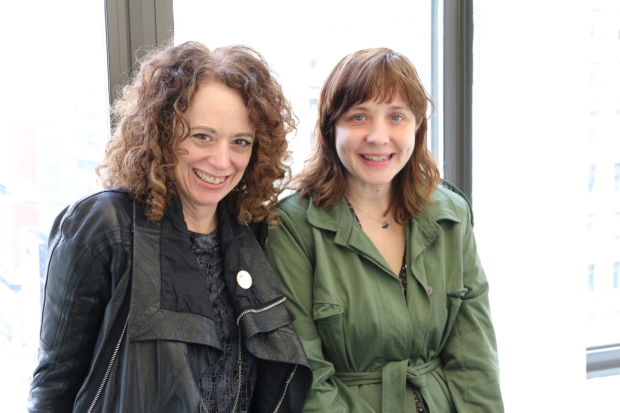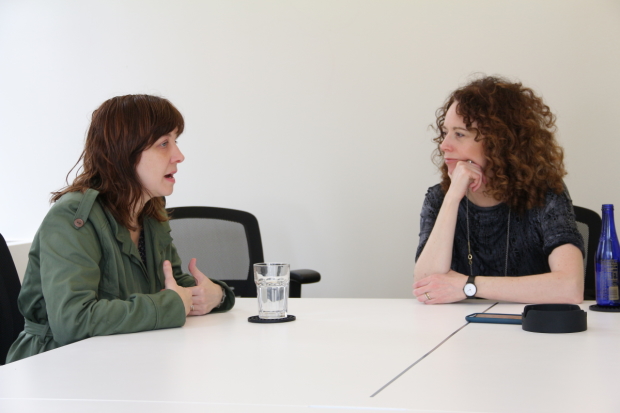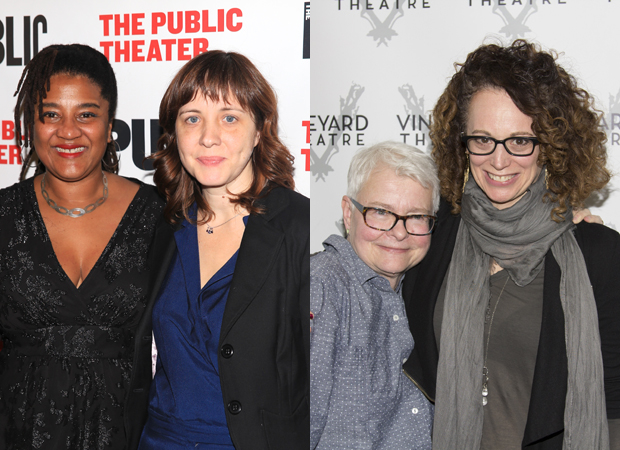Sweat and Indecent Are Broadway's Only Plays Directed by Women

(© David Gordon)
Before 1998, no woman had ever won a Tony for direction, but that year, history was made twice as Julie Taymor (for The Lion King) and Garry Hynes (for The Beauty Queen of Leenane) both took home awards for their work. It seemed like a turning point.
"Sadly it feels like 20 years later we're having a not totally dissimilar conversation," said Rebecca Taichman, the Tony-nominated director for Indecent. "It's not of course exactly the same. We are inching toward our progress, and I am deeply grateful for the opportunity I have had with Indecent. I hope for more embracing of a diverse community of artists that reflects the diversity of our audiences."
While the Broadway community still hasn't managed to reach anything near gender equilibrium, Taichman and her colleague, Sweat director Kate Whoriskey, believe that in the last two decades, the community found itself settling into a comfortable status quo regarding the stories being told and who was telling them. But if the success of their two plays is any indicator, the social climate that's materialized in the last year has been something of a wakeup call.
Right now, Taichman and Whoriskey are the only women directing plays on Broadway, and while the two feel privileged to be working at the level they are, they also feel a fresh imperative to use their literal stages as figurative platforms to speak up about inclusivity on the Great White Way.

(© David Gordon)
You're the only two women currently directing plays on Broadway. What's your takeaway?
Kate: Well, it shows progress. I’m excited that we have two female playwright/director teams on Broadway with Indecent and Sweat and that we are forming a new paradigm. For a while, I think the conventional wisdom was that if you were a woman director, it would be helpful to team up with a male playwright. It was seen as a way of increasing your chances of moving a show to Broadway. I think this season shows us that there is another option.
Rebecca: We are compatriots. Sweat and Indecent represent two very long collaborations between women, and both shows transferred from off-Broadway after large regional productions. Rachel Chavkin, who is enjoying tremendous and richly deserved success, also moved her show through many iterations to get to Broadway. It's rare — very rare — for a woman to get a show from scratch straight to Broadway — though it happens. So as you said, there is progress. It's just slow.
Why do you think consistent progress is so slow in coming?
Rebecca: I think there is very real, unconscious bias in our culture at large. This was played out in the election in a very vivid and, to me, painful way. Loud and clear the election testified: yes, there's misogyny, racism, homophobia very much alive in our culture. The election was a real and fierce swipe at progress towards inclusivity and diversity, and in theater we must gird against that.
Kate: And I think people are afraid to say anything for fear of injuring their careers. Many of us question whether it better to say something or stay quiet.
Rebecca: It is a real systemic issue. One reason there aren't many women directing on Broadway is because there is a long history of inequity. A lot of money is at stake and producers understandably want to work with people they know well and trust. It's a leap of faith to entrust a large Broadway show to someone you don't have actual experience with. Collectively we can kick that door down, take those leaps of faith together, and get more women having those experiences so that we create multiplying opportunities.
Kate: In graduate schools the classes have a more balanced ratio of men to women. Once you look at who's being produced in New York, the numbers begin to shift. I think it's extraordinary that women are still fighting to gain access to the larger platforms and budgets that the theatre community has to offer. I think there's a notion — and this is all personal — but my sons are biracial, so at some point the lesson they will learn from us, their parents, is that they will have to work harder, and I feel the same is true of women directors — we have to be better in order to access equal opportunity.
Rebecca: These beliefs — and fears — are ingrained and deep in our culture. This plays out in varying ways and contexts — sometimes visibly sometimes less so.
What should we do as a community to start to fix the problem?
Kate: By celebrating the people who are producing the stories that are unique and the producers that are taking risks. Significantly — and it's not something that is necessarily talked about — is that Sweat is a working-class play. I will say that it's really wonderful to have a story about a diverse group of people who are working-class on Broadway. When I see it, it feels unique for our community — but in the world, you see construction workers who are different ethnicities working together all the time. I feel like theater is playing a catchup game of what is New York City and how is it reflected on Broadway.
We got comfortable, pre-Trump, with a certain kind of storytelling. I think there's an opportunity now for us to recognize that we are a community of diverse thinkers, writers, and actors, and we need to get everybody onstage. We need to give everybody the opportunity to be on the larger stage.
Rebecca: I agree. The producers of our plays are to be celebrated. Daryl Roth, Cody Lassen, and Liz McCann did such a powerful and beautiful thing by moving Indecent. Now more than ever in my lifetime, it seems essential that we listen to each other. There's a tremendous divide and listening might be our best shot at bridging the divide. Indecent is about the importance of making art in hate-driven times. For that reason, amongst many others, I am very grateful that the story is being told. At its heart Indecent celebrates hope and the power of love and art, and the importance of fighting against injustice of all kinds. It feels important in the extreme right now.

(© Tricia Baron/David Gordon)












